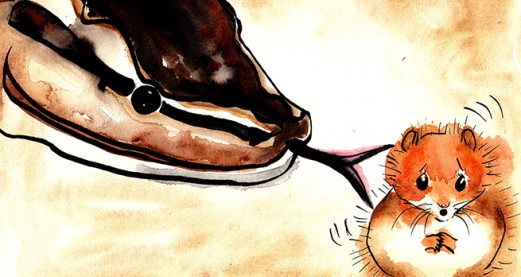
Economy
Internal Market
The Single Market is, for many, the EU’s biggest achievement - a success because it aimed just to promote member states’ economic efficiency, with no wider agenda for political integration. Promoted by the UK, with the symbolic start-date of 1992, the Single Market programme eliminates national differences in technical regulations for goods and services, so the same can be sold in all member states.
“Leave” campaigners say that the EU took too many wrong turns after ‘1992’ – trying to impose a single currency on the single market, and wrongly seeking to standardise political and social arrangements in a similar way. They also argue that the UK could now relinquish its membership without losing any of the advantages of the Single Market. The EU would damage its own living standards, as well as ours, if it put up new barriers against a departing member state, especially its second largest. By joining the European Economic Area (EEA), non-members have been allowed to access the single market for goods and services while avoiding EU rules that might damage other sectors (such as agriculture and fisheries), and to keep up their own trade agreements with other non-members.
UK trade with other regions is now growing faster than that with the EU, whose slower growth dropped its share of world trade from 30% in 1993 to 24% in 2013.
“Stay” campaigners point out that the Single Market is far from complete, with much still to be done to remove national barriers to trade in services. The latest official calculations suggest that the 28 member states could boost their national output another 12% by 2019 if they implement new internal market initiatives already approved by the European Parliament. Many of the gains will come from digital, financial and business services of which the UK is a leading provider. So unless the UK stays in, the project could lose momentum. The UK’s exit would also exclude it from the process of unifying standards across EU member states, making them more likely to insist on costly adaptations – though, like Norway and Switzerland, it would still have to pay a single-market access fee for the benefit of all the others’ standardisation.
While UK trade and investment flows with other regions are now growing faster than those with the EU, the Single Market still accounted for 45% of UK exports and 53% of imports (of goods and services) in 2014 , and EU membership is calculated to have increased this share by over 50%.
National Policies
International rules are both enabling and constraining. The EU surrendered some national power to “Brussels” when it joined the EU, and gave up more powers as the EU extended its Common Policies into new areas such as security and (for the Eurozone) monetary management and banking regulation. In return for this, the EU is intended to amplify national governments’ policy-setting power. Supporters view this as a pooling of sovereignty which can reinfiorce it at national level, protected by the ‘subsidiarity principle’ under which decisions are always kept as close as possible to the level of the individual EU citizen. Critics (and some supporters) believe it is a surrender of sovereignty, leading to member states’ absorption into a bureaucratic EU superstate.
The larger union combines the power of member states that are relatively small (on a global scale), enabling them to implement policies which might otherwise be blocked by bigger countries. For example the EU can steer the US and China towards accepting free trade deals, carbon emissions restrictions and safer banking regulations in a way that the UK on its own might not. The union also prevents the effectiveness of member states’ policies being blocked by the actions or inactions of other European countries, through coordination in the many areas where decisions by one country (or the big businesses based in it) have cross-border consequences. So, for example, the UK can tax alcohol and tobacco more heavily than France, knowing that France will be forced to cooperate on restricting cross-channel shipments of untaxed or under-taxed beer and cigarettes.
But critics of the EU say it now imposes more constraints than enablements, at least for the UK. Policies and rules now tie national governments’ hands, even if they were national-policy-enhancing when UK voters first endorsed membership (of the then European Economic Community) in 1975. In regard to the economy, key divisions of opinion include the following:
Employment and labour rights:
Distinct UK features like flexible hiring conditions and in-work financial benefits are fully preserved in the EU, according to the Remain campaign, which points to the opt-out (negotiated when John Major was Conservative prime minister) from the Social Charter of employee rights as a sign that the EU will respect British exceptionalism. The Leave campaign points to the weakening of this opt-out when Tony Blair was prime minister, and the limited extent to which David Cameron was able to re-instate any waivers of EU employment law.
Social policy:
EU members’ welfare systems range from universal and generous in Scandinavia to selective and minimal in some ex-communist countries, and its central policymakers try to respect this diversity. The Remain campaign suggests they have succeeded, especially after February’s special-status deal for the UK which recognises that member states have “ the possibility of refusing to grant social benefits to persons who exercise their right to freedom of movement solely in order to obtain member States’ social assistance”. Leave campaigners continue to identify high levels of “benefit tourism” which they fear will worsen as EU economic growth stays slow, despite economists’ difficulty in establishing that welfare is what draws EU workers towards the UK.
Tax policy:
The EU has tried to ‘harmonise’ Value-Added Tax and other indirect taxes, to reduce incentives for cross-border shopping and other tax-avoiding movements of goods and people. It has not tried to standardise income taxes, on individuals or corporations. Supporters say this has left freedom for member states to set their own tax rates, enabling (among others) George Osborne’s deep cuts in corporation tax aimed explicitly at attracting European and global businesses into the UK. Critics say the EU curtails this freedom while failing to prevent competitive tax reduction which will eventually leave governments unable to finance the public goods and services their citizens need.
Environmental policy:
Supporters of EU membership identify a range of areas, from carbon limitations to biodiversity protection, in which common policies have made the UK greener. Opponents identify comparably significant ways in which EU policies do environmental damage, deliberately or inadvertently.
Agricultural policy:
Those campaigning to Leave the EU say its Common Agricultural Policy (CAP) has long discriminated against UK farmers because their greater average size, efficiency and crop-intensity limits their subsidy entitlement, leading to a catastrophic fall in farming incomes. The UK rebate, designed to offset its lower level of average farm subsidy (especially compared to France), has been steadily eroded. Those campaigning to Remain, while often critical of the CAP, believe it will be more effectively reformed from within, pointing out that the UK would still have to subsidise farmers heavily from its own budget if this were not done via the EU.
Global Trade
 Has the EU lost relevance as an economic bloc, with Europe shrinking in the world as a result of emerging-market growth and globalization? Or do China’s rising economic power, and instabilities in a more integrated world economy, make it ever more vital for EU countries to stay together?
Has the EU lost relevance as an economic bloc, with Europe shrinking in the world as a result of emerging-market growth and globalization? Or do China’s rising economic power, and instabilities in a more integrated world economy, make it ever more vital for EU countries to stay together?
“Stay” campaigners say that EU membership gives the UK access to more advantageous and comprehensive free-trade arrangements, and stronger safeguards against abuses. The EU can use its status as the world’s largest integrated economy to get better trade terms from other countries, and has the strength to resist when trading partners misbehave (by unfairly keeping out our exports, or ‘dumping’ underpriced imports on us). They point to the US trade representative’s warning in October 2015 that the UK would face extra trade barriers in America if its left the EU, and China’s preference for the UK to stay in the EU in a bridging role. The EU can claim to have advanced free trade on a regional basis while the World Trade Organizations’ efforts at a global trade pact ran into the ground. Its market size attracts foreign direct investment (FDI) into Europe and particularly the UK, whose economy would have been held back without this inflow.
“Leave” campaigners say the UK would actually find it easier to negotiate free trade deals with other countries if it were outside the EU, which must design them to satisfy 27 other member states and generally travels at the speed of the slowest. They argue that the UK already has most of the trade deals it needs – which few would want to renegotiate or reverse if it left the EU – and could get better terms on new ones, because the EU’s huge size makes other countries take a tougher stance against it. Some argue that the EU, by setting a common customs tariff (while scrapping internal tariffs) and still subsidising its agriculture, distorts a world trade system that would work better with individual countries. Others say the EU is being too weak when it comes to the Transatlantic Trade and Investment Partnership (TTIP), which critics attack for potentially forcing the privatisation of public goods and services which member governments want to keep public, and for the secrecy surrounding its negotiation. It has been largely powerless to defend a steel industry hit by cheap imports, with its rules actually preventing member states assisting steelmakers threatened with closure.
If it left the EU, one of the UK’s first tasks would be to negotiate a new trade deal with the remaining 27-member bloc. The “Stay” campaigners draw stern lessons from Canada’s ongoing problems in concluding a bilateral trade treaty with the EU that was supposed to be ready in 2014. To the “Leave” campaign, Eurocrats’ frank expressions of how much they need the UK clearly signal that they will still want all its trade, even if they can’t retain its membership.
Money
 The impact on the financial sector – credited with generating 8% of the UK’s national output, most of its service exports and over £20bn of annual tax revenue – will be a key consideration in the referendum vote. Various financial institutions with large interests in Britain have warned that they and their customers might suffer from a Brexit, including Barclays and the world’s biggest fund manager BlackRock. But a report by Boris Johnson’s economic adviser Gerard Lyons suggests that the City of London – and the country – can now be stronger outside the EU, a verdict which helped to put the London Mayor on the opposite side to the Prime Minister in the referendum, debate.
The impact on the financial sector – credited with generating 8% of the UK’s national output, most of its service exports and over £20bn of annual tax revenue – will be a key consideration in the referendum vote. Various financial institutions with large interests in Britain have warned that they and their customers might suffer from a Brexit, including Barclays and the world’s biggest fund manager BlackRock. But a report by Boris Johnson’s economic adviser Gerard Lyons suggests that the City of London – and the country – can now be stronger outside the EU, a verdict which helped to put the London Mayor on the opposite side to the Prime Minister in the referendum, debate.
Reasons to Remain
Financial markets dislike uncertainty, and the unclear consequences of a UK exit – compared to the reasonably clear picture of life inside – is one reason for financial institutions preferring things the way they are. There are particular concerns about a slide in the value of the Pound, which has already taken some early dives after some senior Cabinet members came down on the Leave side. The Business Secretary, Sajid Javid, has said he will vote to Remain to avoid short-term uncertainty for the economy, despite his ultimate sympathy for the Leave campaign.
Longer-term concerns arise from the possibility of a Brexit restricting access to foreign markets, without could mean substantial downsizing for a UK financial sector that makes much of its profit from managing other countries’ money. Curbing immigration from other EU countries seems to be a main motive for those planning a Leave vote, or campaigning for one. Investors tend to be sceptical over the chances of financial institutions, and the businesses they serve, still enjoying free movement of goods, services and capital around the EU if the UK restricts the free movement of labour.
Incentives to Leave
But Leave campaigners identify ways in which the longer-run benefits of Brexit could outweigh the costs, and will call on voters to avoid clinging to the status quo because of a ‘short-termist’ worry about transition costs. For the financial sector, unusually big in the UK because it generates so much business abroad, the fastest-expanding markets for banking, insurance, fund management and securities trade now seem to lie outside Europe – in the emerging markets of Asia, Latin America and Africa, and in a US economy which most forecasters say is now on a substantially faster growth path than the EU.
While criticising their opponents’ ‘scare tactics’, the Leave side also argues that the risks of abandoning EU membership have now become lower than the risks of staying in. They worry, in particular, that staying in the EU would expose the UK to its troubled experiment with the Euro Area. In its present form, the 17-member Eurozone may be destined to underperform the UK and US economies because of the limits it imposes on freedom of budgetary action, and the problems it causes for less dynamic members. To overcome these constraints, the Eurozone must pursue plans for deeper integration including a banking union which could impede the UK’s unusually large banking sector - despite the ‘special status’ deal secured by David Cameron in February which exempts non-euro-countries’ banks from any new rules set by the Zone. And if the Eurozone breaks up, there could be more years of disruption and downturn in the European economy, from which the UK might be better shielded if it lessened its trade links and stepped up engagement with economies outside the EU.
The referee stays neutral
The Bank of England has ultimate responsibility for keeping the UK financial system stable, maintaining a 2% inflation target and ensuring the health of financial firms under the Prudential Regulation Agency. But it’s also too old and wise an institution to take political sides in the Brexit debate. The assessment it published last October states clearly that EU membership has made the UK economy more open to trade, which helps it become more competitive and innovative. But it also points out that greater openness means more exposure to financial market contagion, especially from the Eurozone, and that the task of maintaining a dynamic, well-regulated UK financial sector may “become more challenging as the euro area integrates further.” So while its report emphasises the extent to which UK financial services currently build on their EU connections, it offers fuel for both sides of the argument, enabling opponents of the Eurozone to argue that Britain would be better-off out whether the Eurozone now prosperously pulls together or disastrously falls apart.
Explore more about the EU referendum...
Study at The OU...
This article is part of an EU Referendum Hub. To find out more from the official 'leave' campaign visit 'Vote Leave' and to find out more from the official 'stay' campaign visit 'Britain Stronger In Europe'.
Please note: The opinions expressed in this hub are those of the individual authors, and do not represent the views of The Open University.






Rate and Review
Rate this article
Review this article
Log into OpenLearn to leave reviews and join in the conversation.
Article reviews